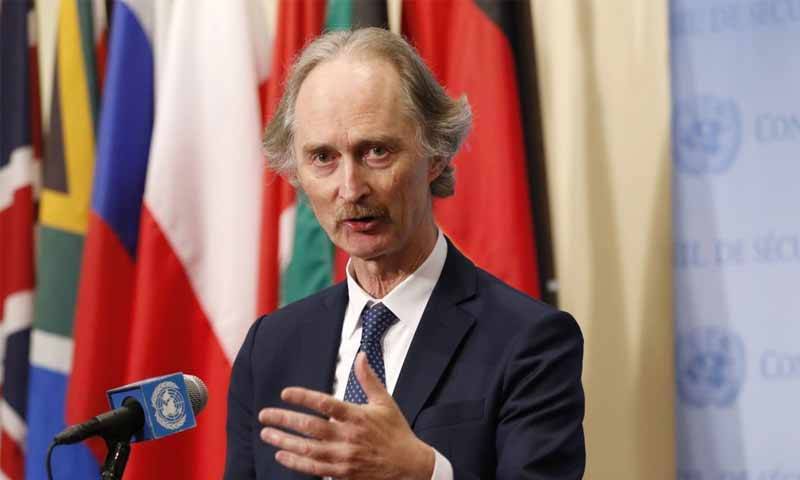The UN special envoy for Syria, Geir Pedersen, is expected to arrive in the capital, Damascus, this afternoon after participating in meetings in Sochi in the "Astana format" and conducting political and military discussions in Moscow. These talks revolve around the future of the constitutional committee in Geneva and the possibility of scheduling a sixth round of talks in March.
According to the Syrian newspaper "Al-Watan," diplomatic sources in Geneva reported that a team of Pedersen's advisors is continuously pressuring him to embarrass the Syrian state and accuse it of obstructing these talks, threatening to end the diplomatic Geneva process. This has resulted in the lack of a scheduled date for the sixth round. However, sources indicate that Pedersen lacks sufficient "arguments" as he understands that he and his advisors are responsible for the lack of substantial progress. They believe that his involvement in the negotiation process is unacceptable to the Syrian government, which sees him as a facilitator rather than a party in these talks.
The sources emphasized that Pedersen hesitated significantly after concluding the fifth round of his visit to Damascus and refused to send a written request for the visit, instead making an oral request. He received a welcoming response from Damascus for a visit at his convenience. The sources concluded that Damascus has nothing to hide or fear from the Geneva discussions, as there are agreed-upon mechanisms that everyone must respect. If Pedersen wishes to accuse the government delegation of obstructing the talks, he must bear the consequences of his statements and reveal the truth about what occurred in these meetings, including how they deviated from the agenda and attempted to impose a preliminary draft of the constitution.
Moscow and Tehran had advised Pedersen, according to "Al-Watan" sources, not to rush the Geneva process, which naturally requires time and effort. However, the special envoy and his advisors are keen to apply pressure, believing that there are certain countries (specifically referring to Russia) capable of exerting pressure on the Syrian capital to make political concessions. The Russian response has been clear through media channels, stating that Moscow can advise Damascus but is not able to impose anything on it, reminding that the Geneva talks are Syrian-Syrian without any external interference or preconditions.
It is likely that Foreign Minister and Expatriates Faisal Mekdad will receive Pedersen, marking their first meeting since Mekdad took over the foreign affairs portfolio, and that he will also meet with head of the national delegation, Ahmad Kuzbari. Sources also suggest that Pedersen may meet with the Russian Federation Ambassador and President Vladimir Putin's envoy to Syria, Alexander Efimov.




